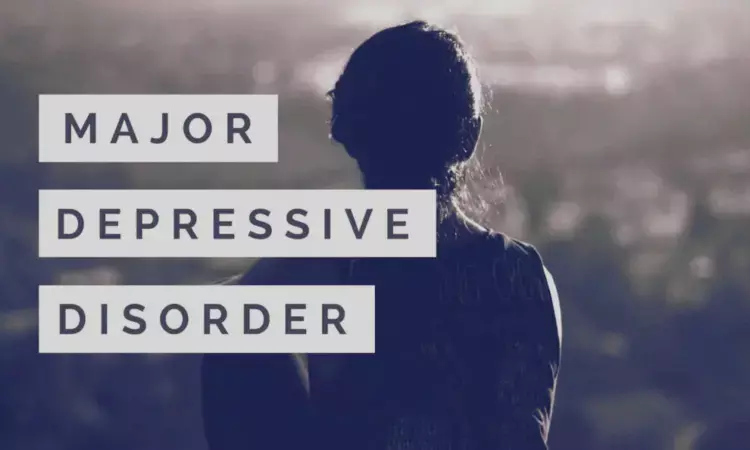- Home
- Medical news & Guidelines
- Anesthesiology
- Cardiology and CTVS
- Critical Care
- Dentistry
- Dermatology
- Diabetes and Endocrinology
- ENT
- Gastroenterology
- Medicine
- Nephrology
- Neurology
- Obstretics-Gynaecology
- Oncology
- Ophthalmology
- Orthopaedics
- Pediatrics-Neonatology
- Psychiatry
- Pulmonology
- Radiology
- Surgery
- Urology
- Laboratory Medicine
- Diet
- Nursing
- Paramedical
- Physiotherapy
- Health news
- Fact Check
- Bone Health Fact Check
- Brain Health Fact Check
- Cancer Related Fact Check
- Child Care Fact Check
- Dental and oral health fact check
- Diabetes and metabolic health fact check
- Diet and Nutrition Fact Check
- Eye and ENT Care Fact Check
- Fitness fact check
- Gut health fact check
- Heart health fact check
- Kidney health fact check
- Medical education fact check
- Men's health fact check
- Respiratory fact check
- Skin and hair care fact check
- Vaccine and Immunization fact check
- Women's health fact check
- AYUSH
- State News
- Andaman and Nicobar Islands
- Andhra Pradesh
- Arunachal Pradesh
- Assam
- Bihar
- Chandigarh
- Chattisgarh
- Dadra and Nagar Haveli
- Daman and Diu
- Delhi
- Goa
- Gujarat
- Haryana
- Himachal Pradesh
- Jammu & Kashmir
- Jharkhand
- Karnataka
- Kerala
- Ladakh
- Lakshadweep
- Madhya Pradesh
- Maharashtra
- Manipur
- Meghalaya
- Mizoram
- Nagaland
- Odisha
- Puducherry
- Punjab
- Rajasthan
- Sikkim
- Tamil Nadu
- Telangana
- Tripura
- Uttar Pradesh
- Uttrakhand
- West Bengal
- Medical Education
- Industry
Combination of empagliflozin and citalopram effective against major depressive disorder: Study

Iran: Combination therapy of empagliflozin and citalopram is effective in reducing symptom severity in patients with major depressive disorder, a randomized double-blind, placebo-controlled clinical trial has shown.
Empagliflozin is a blood sugar-lowering drug that works as a highly selective and potent inhibitor of sodium-glucose co-transporter 2 (SGLT2).
"This average reduction in symptom severity was statistically significant over time compared to the reduction of symptoms seen in the placebo-citalopram group," Atefeh Zandifar, Alborz University of Medical Sciences, Karaj, Iran, and colleagues wrote in their study published in BMC Psychiatry.
Considering the promising findings, the researchers recommend further study of empagliflozin as adjunctive therapy in MDD with longer follow-ups and larger sample sizes.
Major depressive disorder (MDD) is one of the most common psychiatric disorders associated with a high disease burden. MDD affects an estimated 300 million people worldwide every year, which accounts for the highest number of years of disability among psychiatric disorders.
Selective serotonin reuptake inhibitors (SSRIs) are a type of antidepressant that is prescribed commonly as the first line of treatment for MDD. The prescribed SSRIs include fluoxetine, citalopram, paroxetine, and sertraline. However, the researchers note that the current treatment using antidepressants has limitations, so it will be helpful to use medication with anti-inflammatory and neuromodulation properties alongside them.
Against the above background, the researchers studied the effectiveness of empagliflozin as an adjunctive therapy to reduce the severity of depression symptoms.
The study included outpatients with moderate to severe depression (Hamilton Depression Rating Scale (HDRS) > = 17) who were not under related medication or had not taken medication for at least the last two months, with ages 18–60 years and had written informed consent to enter the study (N = 90). They were randomly divided into two groups receiving placebo or empagliflozin (10 mg daily) combined with citalopram (40 mg daily) in an 8-week randomized, double-blind, placebo-controlled clinical trial. They were evaluated using the HDRS in weeks 0, 4, and 8.
The researchers reported the following findings:
· HDRS scores were equal to 28.42, 20.20, and 13.42 in the placebo group during weeks 0, 4, and 8, respectively. These scores were 27.36, 13.76, and 7.00 for the group treated with empagliflozin.
· Compared to the control group, patients treated with empagliflozin using repeated-measures ANOVA showed a greater improvement in reducing the severity of depression symptoms over time.
In conclusion, the study found that empagliflozin is associated with psychiatric usefulness and a reduction in the severity of depression symptoms compared to the control group.
"Considering the multitude of possible mechanisms involved in the formation of this effect along with the vascular and metabolic benefits of this medication, it seems that evaluating empagliflozin's effect as adjuvant treatment on MDD among different clinical groups in multicenter conditions and with a larger sample size with longer follow-ups may be accompanied by more accurate clinical judgment in this field," the researchers wrote.
Reference:
Zandifar, A., Panahi, M., Badrfam, R. et al. Efficacy of empagliflozin as adjunctive therapy to citalopram in major depressive disorder: a randomized double-blind, placebo-controlled clinical trial. BMC Psychiatry 24, 163 (2024). https://doi.org/10.1186/s12888-024-05627-0
Dr Kamal Kant Kohli-MBBS, DTCD- a chest specialist with more than 30 years of practice and a flair for writing clinical articles, Dr Kamal Kant Kohli joined Medical Dialogues as a Chief Editor of Medical News. Besides writing articles, as an editor, he proofreads and verifies all the medical content published on Medical Dialogues including those coming from journals, studies,medical conferences,guidelines etc. Email: drkohli@medicaldialogues.in. Contact no. 011-43720751


